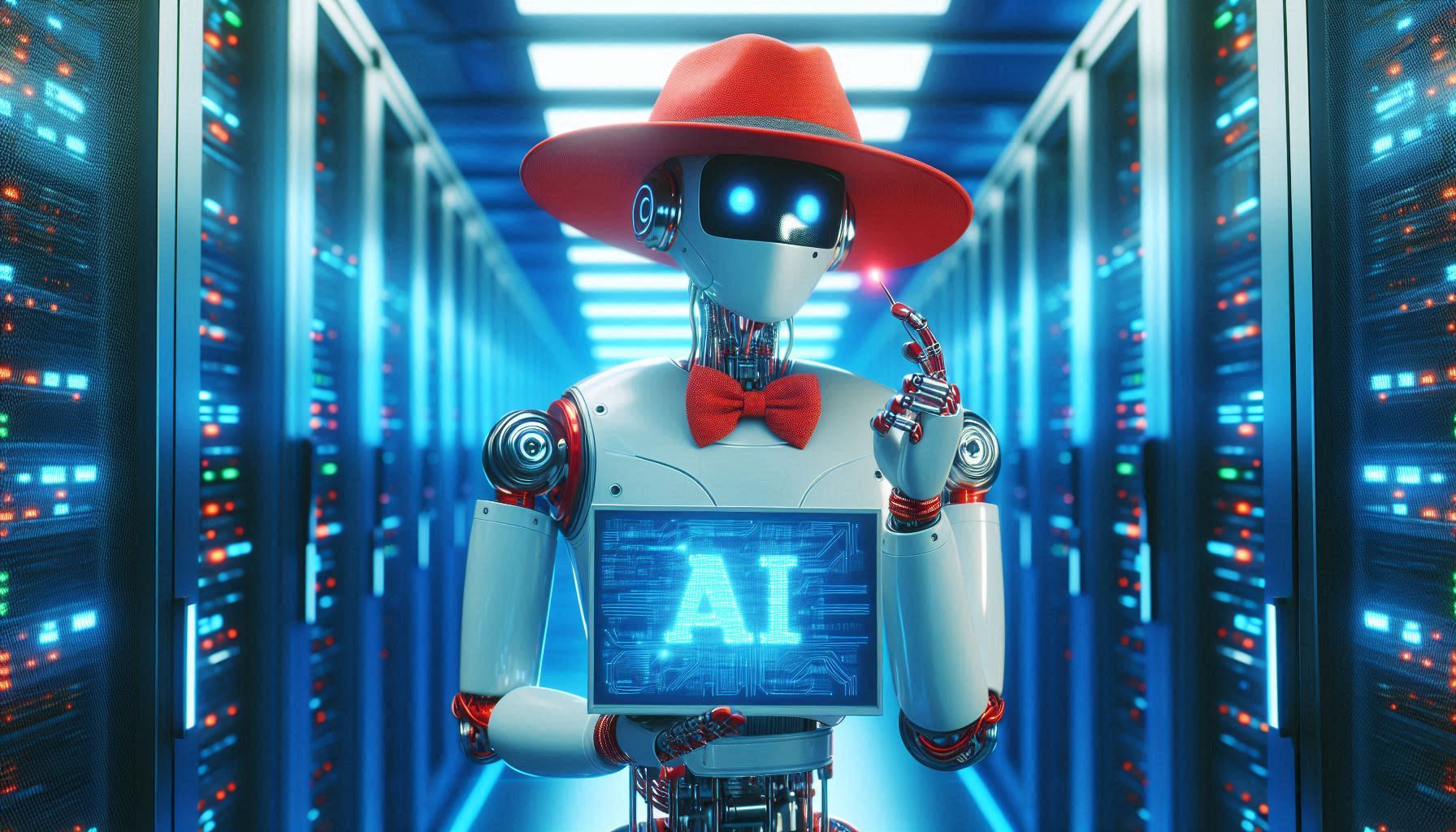 AI
AI
 AI
AI
 AI
AI
Dell Technologies Inc. said today it’s partnering with Red Hat Inc. to bring the Red Hat Enterprise Linux AI or RHEL AI platform to its popular PowerEdge servers, paving the way for its hardware to serve as a foundation for artificial intelligence development.
The companies explained that the partnership will make it easier for organizations to scale their information technology infrastructure to support successful AI and machine learning strategies, without needing to host those workloads in the cloud. They can deploy Dell’s PowerEdge servers within their own on-premises data centers, or alternatively use them as part of a larger hybrid cloud setup.
RHEL AI is a specialized version of the traditional Red Hat Enterprise Linux operating system that’s geared for the development of foundational AI models. It’s used by developers to create, test and deploy AI models in production, and it’s now the preferred platform for Dell’s specialized AI server, the PowerEdge R760xa.
One of the advantages of RHEL AI is that it provides access to the powerful and open-source Granite family of large language models developed by IBM Research. The Granite models are an alternative to better-known open-source models such as Meta Platforms Inc.’s Llama family, as well as proprietary models such as OpenAI’s GPT LLMs, and they’re known to excel at generative AI coding tasks.
In addition to Granite, the RHEL AI platform also comes with InstructLab model alignment tools based on Large-scale Alignment for chatBots methodology. It’s available as an optimized and bootable RHEL image for individual server deployments. It’s also included in Red Hat’s OpenShift AI, which is a hybrid cloud machine learning operations or MLOps platform for running models and InstructLab at scale across distributed cluster environments.
According to Dell and Red Hat, by running RHEL AI on PowerEdge servers, customers will benefit from a simplified AI experience, with a platform that’s continuously tested and validated for AI workloads, including Nvidia-accelerated computing.
The last point is important, said Dell Senior Vice President Arun Narayanan, because validation of RHEL AI for AI workloads on the company’s PowerEdge servers means customers can be more confident about the stability and scalability of their infrastructure investments. “This simplifies the generative AI user experience and accelerates the process to build and deploy critical AI workloads on a trusted software stack,” he added.
Joe Fernandes, Red Hat’s vice president and general manager of generative AI foundation model platforms, said AI projects require access to extensive computing resources that can scale as they grow. “By collaborating with Dell Technologies to validate and empower RHEL AI on Dell PowerEdge servers, we are enabling customers with greater confidence and flexibility to harness the power of generative AI workloads across hybrid cloud environments and propel their business into the future,” he said.
Dell said RHEL AI will be available on its newest PowerEdge servers by the third quarter of the year, and before that happens, customers will be able to access it in preview at Dell Customer Solution Centers globally.
Support our mission to keep content open and free by engaging with theCUBE community. Join theCUBE’s Alumni Trust Network, where technology leaders connect, share intelligence and create opportunities.
Founded by tech visionaries John Furrier and Dave Vellante, SiliconANGLE Media has built a dynamic ecosystem of industry-leading digital media brands that reach 15+ million elite tech professionals. Our new proprietary theCUBE AI Video Cloud is breaking ground in audience interaction, leveraging theCUBEai.com neural network to help technology companies make data-driven decisions and stay at the forefront of industry conversations.